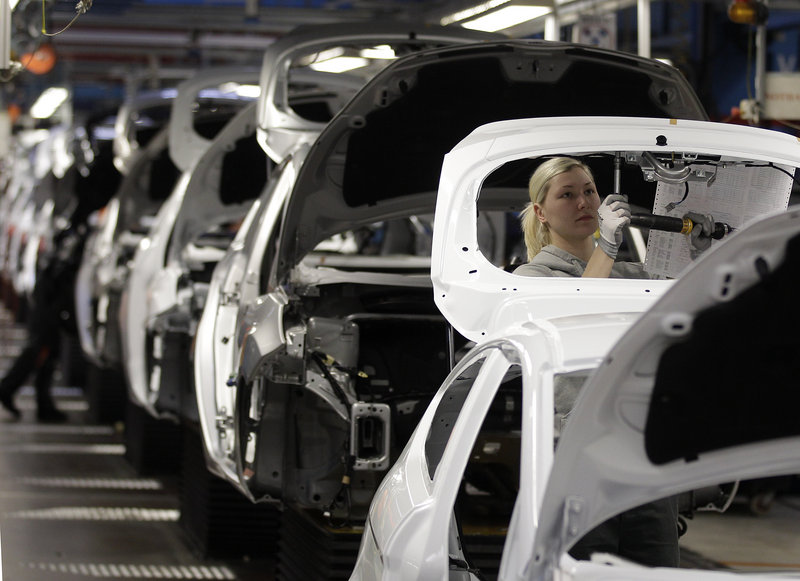BERLIN – While the rest of Europe nervously peers at an insecure future, Germans are spending their evenings in long lines, hoping for a chance to buy or rent property before costs rise even more.
Since the euro crisis began, a Berlin housing boom has seen rents rise by 70 percent in posh districts, and 23 percent even in dicey areas. And this newly forming housing bubble is just one of many signs that the fortunes of Germany and the eurozone it leads have taken sharply divergent paths.
As the euro crisis deepens, and more and more neighbors slip down the path toward economic perdition, it is increasingly obvious that the German economy is growing healthier.
Oddly, the Germans don’t have a word for it. Yet. But Germans are well aware that these divergent paths are connected. Schadenfreude might be the term, except that instead of finding joy in the misery of others, the Germans are finding cash money.
Ferdinand Fichtner, head of the department of forecasting and economic policy at the German Institute for Economic Research, said problems elsewhere force the European Central Bank to keep interest rates low. That, he said, is a boon to already booming German manufacturers.
“Businesses can invest and expand further,” he said. “We will see more growth, more employment and higher wages, leading to better domestic sales as well.”
How this German attitude of well-being will affect the outcome of Europe’s crisis is a major uncertainty. Greece is headed for new elections next month that many analysts believe are likely to further strengthen the hand of those who favor renegotiating last year’s debt bailout deal, which required the Greeks to impose tough austerity measures. German officials have said they are opposed to any change in the deal.
On Tuesday, however, Germany lost its closest economic ally when France swore in socialist Francois Hollande as president, replacing the conservative Nicolas Sarkozy. Hollande, who has said it’s clear Europe cannot cut its way to prosperity, immediately flew to Berlin to meet with German Chancellor Angela Merkel.
Last week, Merkel made it clear that she is disinclined to back a stimulus program. “Growth through structural reform is sensible, important and necessary,” she told Parliament. “Growth funded by debt will just lead us back to the beginning of the crisis. We can’t do that and we won’t do that.”
That makes the path unclear, with German economists offering a variety of suggestions, but leery of dictating the solution.
“We can’t tell the crisis countries what to do,” Fichtner said. “The structural change has to come from within them, or else it will be even harder to sell to the public. But we should provide expertise.”
Coloring the German debate is the good times Germans are living now. While the unemployment rate among Greek young people is thought to approach 50 percent, and has reached a 15-year high in the rest of the eurozone, German unemployment, driven by strong exports, is the lowest it’s been since East and West Germany became one 22 years ago.
Anton Boerner, president of the German Foreign Trade Federation, notes that, in the end, what matters about Greece to Germany is that it doesn’t disrupt the current good times.
“We have carried out structural reforms before it was too late and were better prepared for the crisis than others,” Boerner said. “We have come out of the crisis stronger than we entered it, and the prospects for German business are excellent for decades to come.”
Send questions/comments to the editors.



Success. Please wait for the page to reload. If the page does not reload within 5 seconds, please refresh the page.
Enter your email and password to access comments.
Hi, to comment on stories you must . This profile is in addition to your subscription and website login.
Already have a commenting profile? .
Invalid username/password.
Please check your email to confirm and complete your registration.
Only subscribers are eligible to post comments. Please subscribe or login first for digital access. Here’s why.
Use the form below to reset your password. When you've submitted your account email, we will send an email with a reset code.